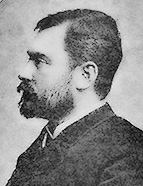

This distinction, however, does not prevent Oliveira Martins from oscillating in his works between a concept of a political nation—a nation as a consciousness formed through the determination of its elite’s will (with the people often depicted in his narratives as generalised figures, settings, or even spectral scenarios)—and suggestions of an ethnic determinism that occasionally emerge as explanatory factors. For instance, this is evident when he proposes the hypothesis of a “greater dose of Celtic blood” to explain the character of the Lusitanians ( História de Portugal I , p. 6). While he rejects the determinist idea of an ethnic unity at the origins of the nation (as reflected in his critique of Teófilo Braga’s concept of a natural and ethnic nation), it is also true that his works frequently suggest racialist ideas ( Idem , I, p. 6), perhaps later overemphasised by António Sérgio. However, the work in which his openness to ethnic determinism is most evident, adhering unequivocally to the racialist theories of the time that advocated the superiority of Aryan peoples, is As raças humanas . Nevertheless, in this work, Martins acknowledges the idea of irregular, variable, and asynchronous progress across different societies. Furthermore, diverging from the positivists, he emphasises the notion of the indeterminacy of historical development. Does he not leave the narratives of História de Portugal and Portugal Contemporâneo open-ended with two unanswered questions? And in a text from 1884, is there not a question that unequivocally distances him from teleological systems? “Who can determine laws and discover scientific reasons for so many and such complex events? (…) w hat vanity it is to claim to determine the motives, to foresee the consequences, when faced with the inextricable complexity of the animal instincts of peoples, their rational instincts, and the passions of men (…)?” (“Teoria da história Universal” ["Theory of Universal History"], Política e história II [Politics and History II], 1884, p. 7). Martins was well aware of the discontinuities and ruptures (revolutions) in the process of nations’ evolution. He thus accepted the idea of non-uniform progress, including phenomena of “paralysis” in development (citing China as an example) or even degeneration (as in the cases of Egypt or Polynesia). While he considered Europe to be the most advanced centre of civilisation, he also acknowledged the emergence within it of regressive phenomena (Malthusianism, infanticide, alcoholism, prostitution, polygamy, etc.), including the rise of “internal barbarians” and manifestations of degeneration—a concept widely discussed in the scientific circles of the time, particularly in psychopathology but also adopted by the social sciences.
This work is financed by national funds through FCT - Foundation for Science and Technology, I.P, in the scope of the projects UIDB/04311/2020 and UIDP/04311/2020.
